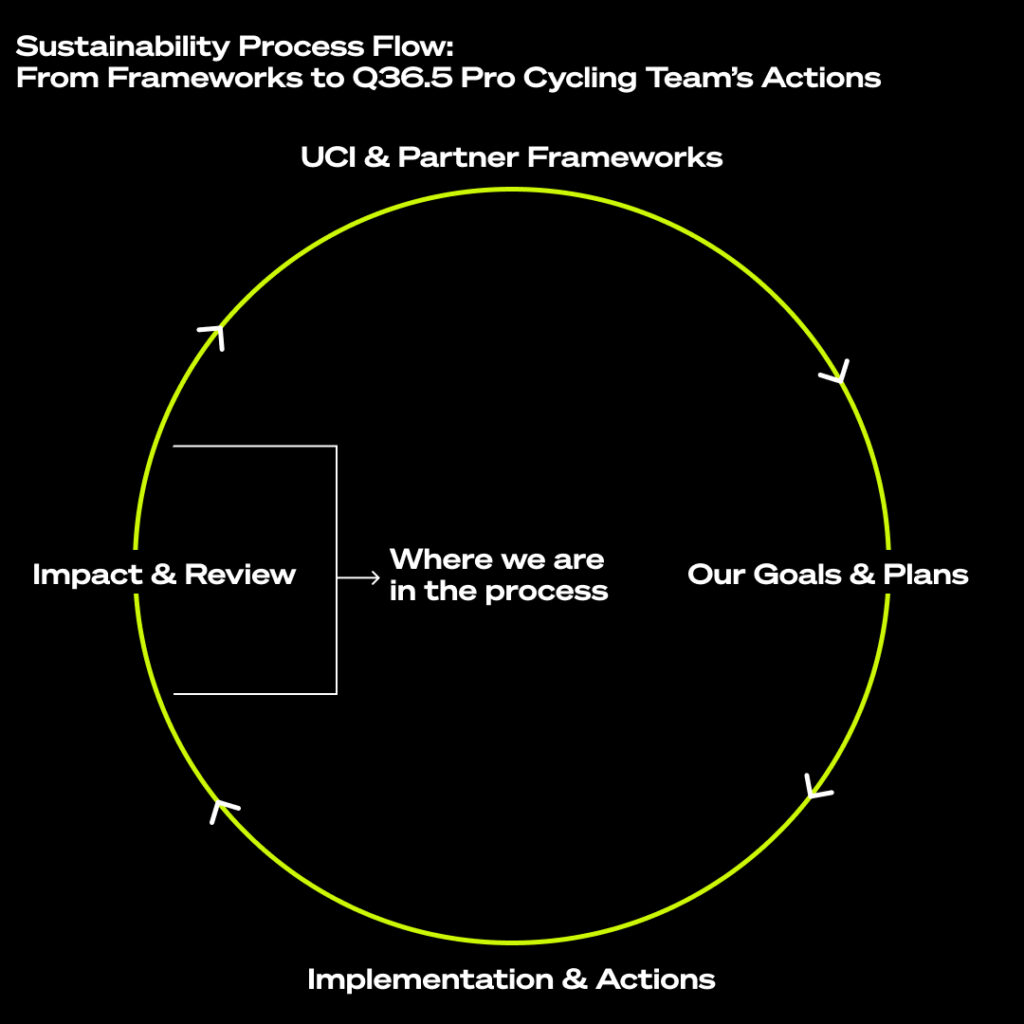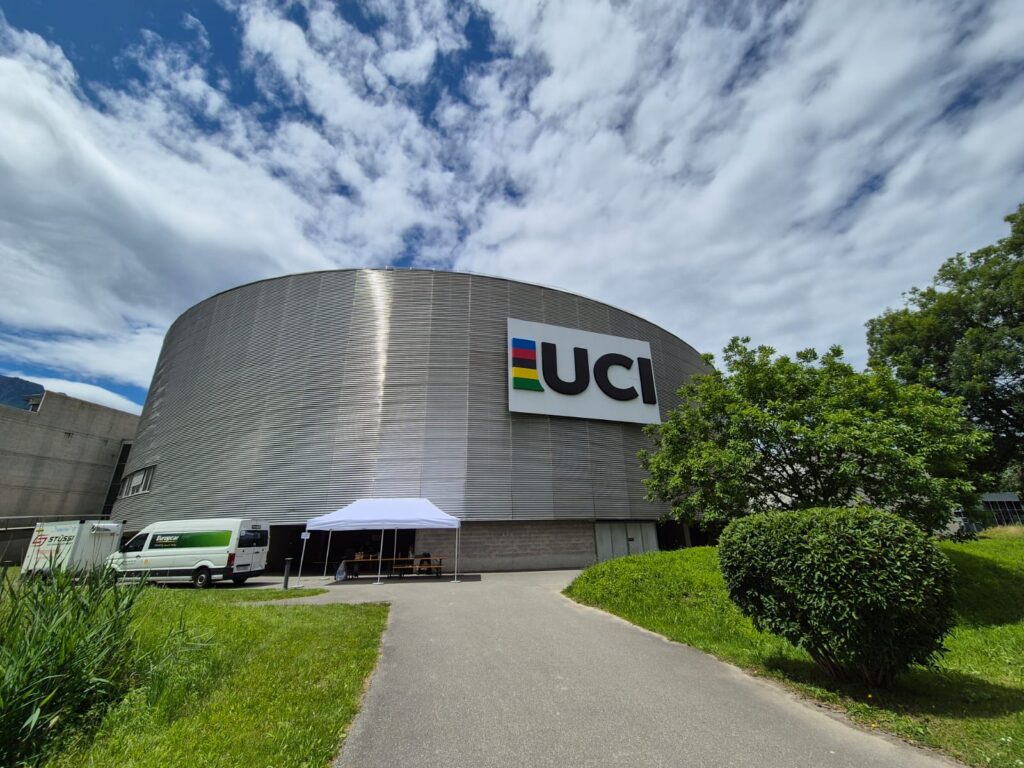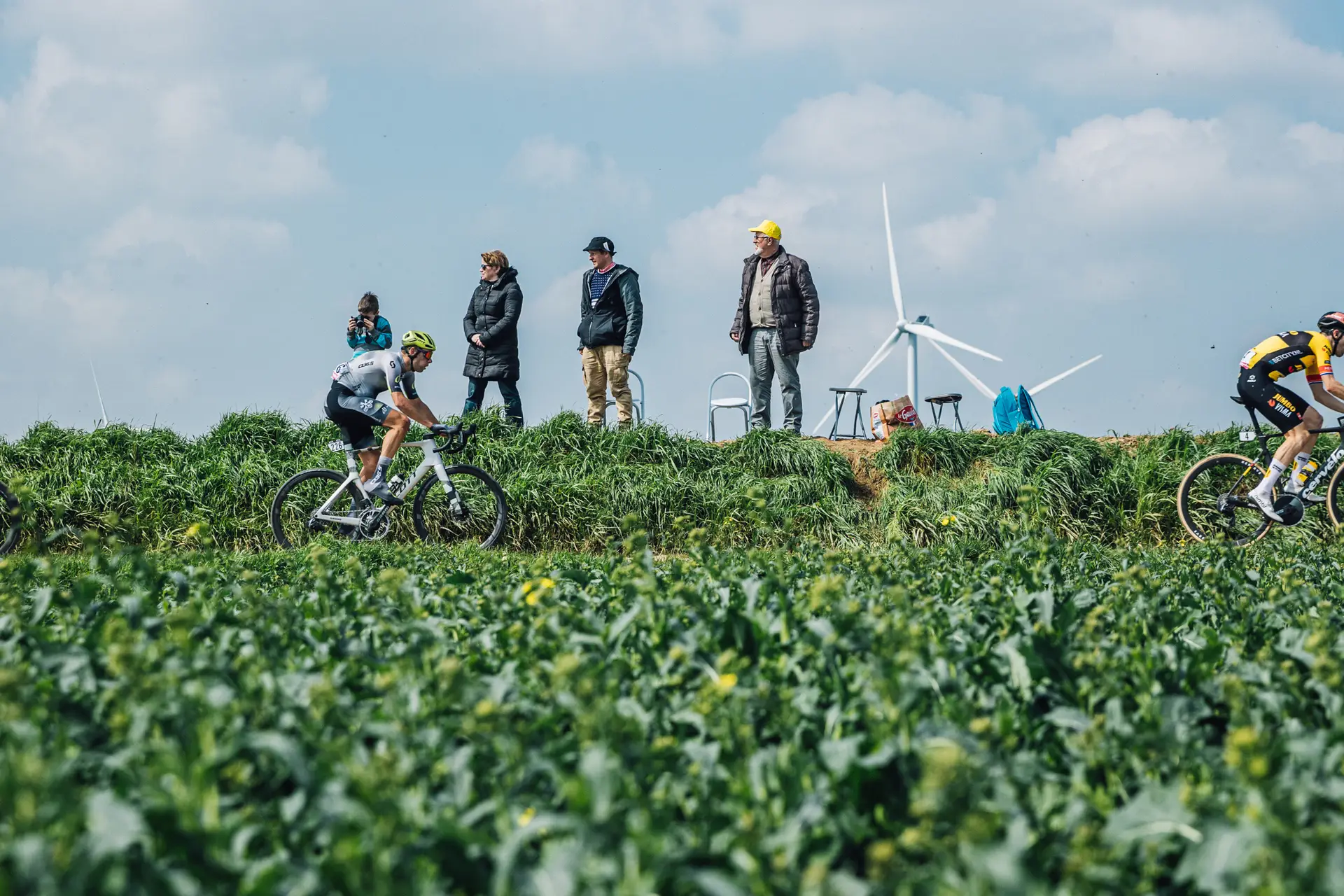Planet
Part 3: Our Commitment to a Sustainable Future in Cycling
During Stage 8 of the Tour de Suisse, our team had the opportunity to visit the UCI headquarters. This proximity to the heart of cycling governance reinforced the importance of aligning with the UCI’s comprehensive action plan, driving us to enhance our efforts and share our journey with our fans and stakeholders.
At Q36.5 Pro Cycling Team, our commitment to sustainability goes beyond our immediate actions. We believe in aligning with broader industry standards and continually improving our eco-friendly practices.
24 June 2024.

Global Commitment to Sustainability
The Union Cycliste Internationale (UCI) as well as our Partners have prioritized promoting sustainability within their industries as well as in cycling. The main principles are often to reduce emissions, promote active travel, and foster sustainable practices across their industries.
As signatories on the UCI Action Charter and proud ambassadors to our Partners and their frameworks, we are proud to align our efforts with these global standards.
Our process
Based on these frameworks, we set specific goals and develop plans that include reducing plastic usage, optimizing travel, adopting renewable energy, and sustainable sourcing. Our implementation involves tangible actions such as using reusable bottles, eco-friendly packaging, and solar-powered buses, alongside waste management strategies and reducing travel emissions by utilising trains.
We continuously assess the impact of our actions, noting reductions in plastic waste and emissions, and review our results to identify areas for improvement.
This reflective process allows us to refine our goals and actions, ensuring continuous alignment with updated guidelines and new sustainability initiatives. By incorporating feedback and best practices, we strive to further enhance our sustainability efforts and lead by example in the cycling community.

Reflecting on Our Practices
1. Transportation
UCI framework: The UCI emphasizes the reduction of travel-related emissions by using low-carbon transport options.
What We Do: We have made significant strides by choosing trains over flights whenever possible.
Impact: In Part 2, we shared that using trains instead of planes reduced our carbon emissions by a substantial margin, showcasing our commitment to sustainable travel.
2. Energy Usage
UCI Framework: The UCI advocates for the adoption of renewable energy sources.
What We Do: We use solar panels on team buses, as mentioned in Part 1.
Impact: This has reduced our reliance on diesel generators, cutting emissions and noise pollution, as detailed in Part 2.
3. Waste Management
UCI Framework: The UCI highlights the importance of reducing and recycling waste.
What We Do: We implemented a 10-point sustainability plan, including the use of reusable bottles and eco-friendly packaging.
Impact: We reported that these initiatives have led to a significant reduction in plastic and tin foil usage, preventing thousands of single-use items from ending up in landfills.
4. Sustainable Sourcing
UCI Framework: The UCI encourages sustainable procurement practices.
What We Do: We prioritize local and sustainable procurement. Although very tough to monitor, it is always top of mind in decision making at the Service Course in the Netherlands.
Impact: By sourcing locally, we have reduced our supply chain emissions and supported local economies.

The 2022 Mercedes-Benz UCI Mountain Bike Final in Val di Sole case study offers valuable insights that inspire us to improve our sustainability practices:
1. Plastic Reduction
UCI Framework: Reduce single-use plastics by using refillable bottles and hydration stations.
What We Do: We have installed water fountains at our events and require all staff to use refillable bottles, as mentioned in Part 2.
Impact: This initiative significantly reduced the reliance on single-use plastics.
2. Local Engagement
UCI framework: Engage with local communities to promote sustainability.
What We Do: We involve local businesses, our partners and residents in our sustainability initiatives.
Impact: This community engagement extends our sustainability efforts beyond the race itself, fostering a broader impact.
3. Biodegradable Materials
UCI framework: Use biodegradable materials for race infrastructure.
What We Do: We use eco-friendly materials wherever feasible, in conjunction with our partners.
Impact: This has reduced our environmental footprint, which isn’t always recorded, but definitely impactful.








